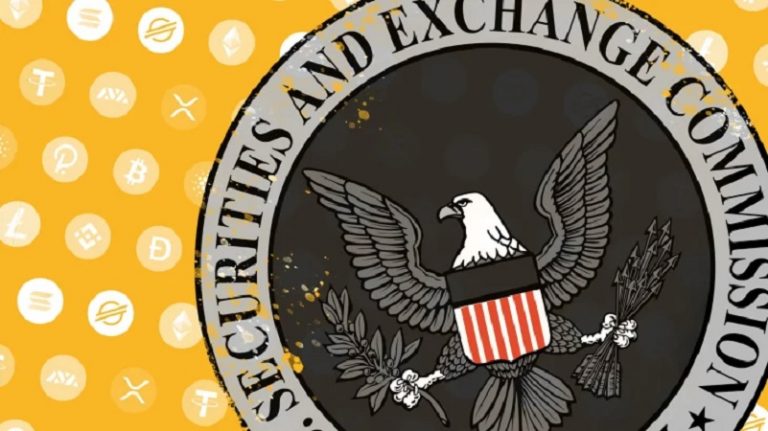
The Securities and Exchange Commission (SEC) is a federal agency that regulates the securities markets in the United States. The SEC’s mission is to protect investors, maintain fair and orderly markets, and facilitate capital formation.
One of the SEC’s responsibilities is to define and classify different types of securities, which are financial instruments that represent ownership or debt obligations in a company, a government, or another entity. Securities can be traded on exchanges or over-the-counter markets, and they can have various features and risks.
One of the categories of securities that the SEC defines is security assets. Security assets are securities that are backed by specific assets, such as mortgages, loans, receivables, or leases. Security assets can also be called asset-backed securities (ABS) or securitized products.
Tekedia Mini-MBA edition 14 (June 3 – Sept 2, 2024) begins registrations; get massive discounts with early registration here.
Tekedia AI in Business Masterclass opens registrations here.
Join Tekedia Capital Syndicate and invest in Africa’s finest startups here.
Security assets are created when an entity (called the originator) sells a pool of assets to another entity (called the issuer), which then issues securities that represent claims on the cash flows generated by the underlying assets. The issuer typically transfers the assets to a special purpose vehicle (SPV), which is a legal entity created solely for the purpose of holding the assets and issuing the securities.
The main benefit of security assets is that they allow the originator to raise funds by selling its assets without giving up control over them. The originator can also reduce its credit risk by transferring some or all of the default risk to the investors who buy the securities. The investors, on the other hand, can diversify their portfolios by accessing different types of assets and cash flows that may not be available otherwise.
The main risk of security assets is that they depend on the performance and quality of the underlying assets. If the borrowers or lessees fail to make their payments, or if the value of the collateral declines, the cash flows to the investors may be reduced or interrupted. The investors may also face legal or operational risks if the issuer or the SPV fails to comply with their obligations or if there are disputes over the ownership or transfer of the assets.
Security assets are subject to various regulations and disclosure requirements by the SEC and other agencies. The SEC requires issuers of security assets to register their offerings with the SEC and provide periodic reports on their financial condition and performance. The SEC also enforces anti-fraud and anti-manipulation rules to prevent misconduct and protect investors.
Security assets are an important and complex part of the securities markets. They offer benefits and risks for both originators and investors, and they require careful analysis and due diligence before investing. By understanding what SEC security assets are, you can make more informed decisions about your financial goals and strategies.
The SEC has jurisdiction over securities and securities transactions, which include stocks, bonds, mutual funds, exchange-traded funds (ETFs), and derivatives. The SEC also has authority over any digital asset that is considered a security under the securities laws.
How does the SEC determine whether a digital asset is a security or not?
The SEC does not have a specific definition of a digital asset or a cryptocurrency. Instead, it applies the same principles and tests that it uses for any other type of asset to determine whether it is a security or not.
The most common test that the SEC uses is called the Howey Test, which comes from a 1946 Supreme Court case involving orange groves. The Howey test states that an asset is a security if it involves:
An investment of money.
In a common enterprise.
With an expectation of profits.
Predominantly from the efforts of others.
The SEC has applied the Howey test to various digital assets and found that some of them are securities, while others are not. For example, the SEC has concluded that Bitcoin and Ether are not securities, because they are decentralized networks that do not rely on the efforts of a third party to generate profits for investors. However, the SEC has also concluded that many initial coin offerings (ICOs) and tokens are securities, because they involve raising money from investors who expect to profit from the development and promotion of a project by a central entity.
If a digital asset is deemed to be a security by the SEC, it means that it is subject to the same rules and regulations as any other security. This has important implications for both investors and issuers of SEC security assets.
For investors, it means that they have certain rights and protections when they buy or sell SEC security assets. For example, they have the right to receive accurate and timely information about the asset, such as its price, performance, risks, fees, and financial statements. They also have the right to sue for fraud or misrepresentation if they are misled or deceived by the issuer or any other party involved in the transaction. Additionally, they have access to various mechanisms for dispute resolution and recovery of funds if they suffer losses due to misconduct or insolvency.
For issuers, it means that they have certain obligations and responsibilities when they offer or sell SEC security assets. For example, they have to register their securities with the SEC or qualify for an exemption from registration. They also have to comply with various disclosure, reporting, auditing, and anti-fraud requirements. They also have to follow certain rules regarding trading, custody, transfer agents, broker-dealers, exchanges, and market makers.



